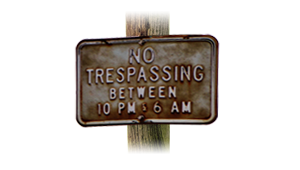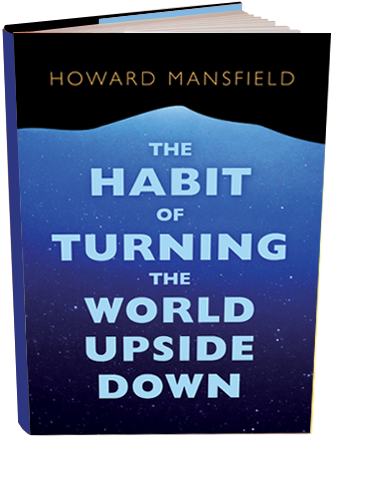THE HABIT OF TURNING THE WORLD UPSIDE DOWN
by Howard Mansfield
Bauhan Publishing, LLC
ISBN: 978-0-87233-270-6
While reporting on citizens fighting natural gas pipelines and transmission towers planned to cut right across their homes, Howard Mansfield saw the emotional toll of these projects. “They got under the skin,” writes Mansfield. “This was about more than kilowatts, powerlines, and pipelines. Something in this upheaval felt familiar. I began to realize that I was witnessing an essential American experience: the world turned upside down. And it all turned on one word: property.”
The Habit of Turning the World Upside Down is about our belief in property and the cost of that belief.
“American property,” Howard Mansfield writes, “is always in motion. The world spins; the land under our feet is set spinning by what the law has decided, case by case, over hundreds of years, to be the ‘highest and best use’ of property. The law favors active use and big plans. That deed you may hold is subject to further negotiation by parties unknown to you; it’s subject to being called in, even nullified. The ‘quiet citizen must keep out of the way of the exuberantly active one,’ is how it was defined in the 19th Century. Development has the right of way.
“And yet property is our anchor and our North Star,” writes Mansfield. “We take it as a certainty. It’s our liberty, our pursuit of happiness, as the nation’s founders said. The battles going on around the country today about where to build pipelines, transmission towers, and windmill farms show that our rock-solid certainty is uncertain. That’s part of the anguish in each conflict.”
In The Habit of Turning the World Upside Down we meet a dairy farmer in far northern New Hampshire who refuses $4 million from Hydro-Quebec for his land, and we meet a Massachusetts family whose two acres may be subsumed by a gas pipeline. We see property in its many guises. We walk with the Tohono O’odham in the Sonoran Desert. We visit a small Maine island and stand where the water will be rising in just a few years as the planet warms. There are historic moments, too: a stubby granite monument in the woods of New Hampshire that tells of the death of feudalism in the New World; the buried history of a Vermont farmer who suicides as his life is bulldozed under for the new interstate; and there’s great reform push that gave us the glorious and precarious Weeks Act which saved the White Mountains and gave us national forests east of the Mississippi.
The Habit of Turning the World Upside Down tells the stories of Americans living in a time in which everything is in motion, in which the world will be turned upside down, again and again. The book’s title comes from an observation by Alexis de Tocqueville on his visit to America in 1831, which is the book’s epigraph: “It would seem that the habit of changing place, of turning things upside down, of cutting, of destroying, has become a necessity of [the American’s] existence.”

